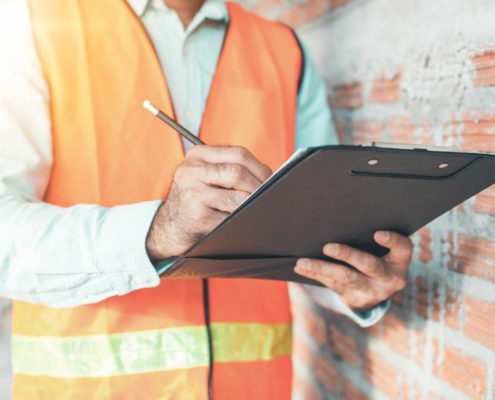KNOWLEDGE IS POWER
Some home buyers choose to only book the standard inspection. This may end up being a foolish decision in some cases. We understand that the entire home buying process can get costly but cutting corners when it comes to such a large investment and potentially the safety of those closest to you is just not worth the risk. We recommend adding all of the following (when applicable) ancillary services to your home inspection and to invest in your peace of mind.
- Radon Testing
- Mold Testing
- Air Quality Testing
- Termite & Pest Inspection
- Sewer Scope
- Tank Sweep
THAT’S SO BASIC
Become familiar with the types of things that are most commonly found during a home inspection. The hope is that this foreknowledge will help to alleviate any unnecessary anxiety if downspout or window seal issues are found. Don’t let a loose toilet rattle you or deter you from purchasing your dream home. Here are some of the most common home inspection findings that are also fairly easy to fix:
- GFCI (ground fault circuit interrupter) not working
- Missing tiles
- Hanging or clogged gutters
- Downspout issues
- Faulty window seal
- Loose Toilet Base
- Dirty Furnace Filters
NOW YOU SEE IT…
Keep in mind that a home inspection is a visual, non-invasive evaluation of the accessible systems and components of the home at the time of the inspection. It may not identify every issue, and in some cases, you may need to enlist the services of specialists to further assess critical systems such as HVAC, electrical, or plumbing.
CRACK THE CODE
It’s important to note that home inspections are not designed to pass or fail a property, nor are they intended to be code inspections. Instead, the goal is simply to provide a thorough evaluation of the overall condition of the property and identify any potential issues or safety hazards that may exist.
We hope you found this information helpful and we look forward to working with you. If you have any questions, please don’t hesitate to ask!







Leave a Reply
Want to join the discussion?Feel free to contribute!